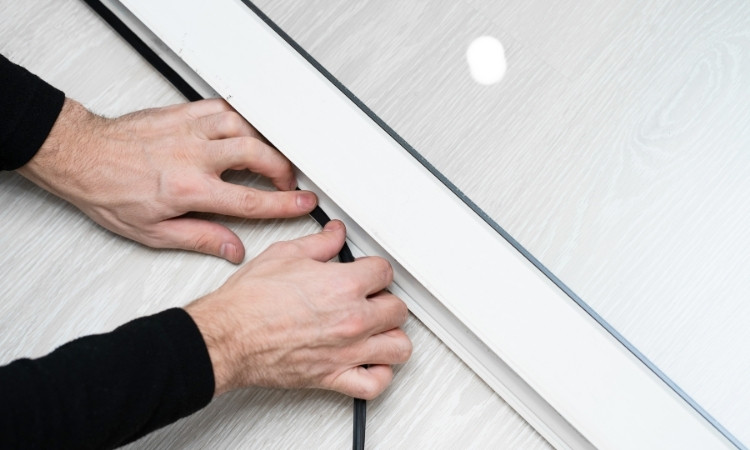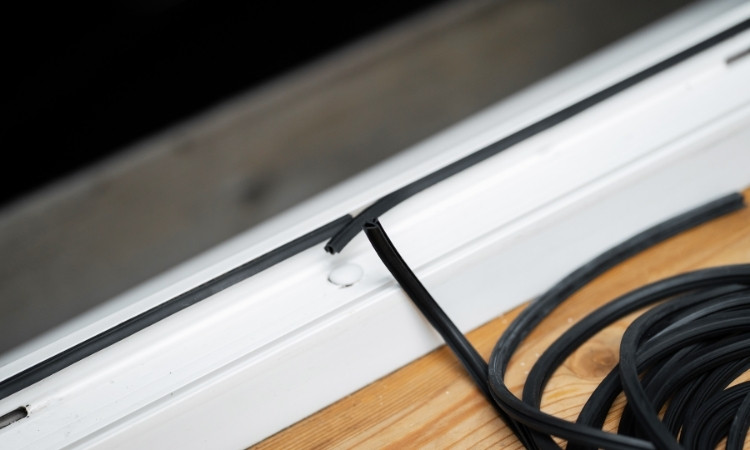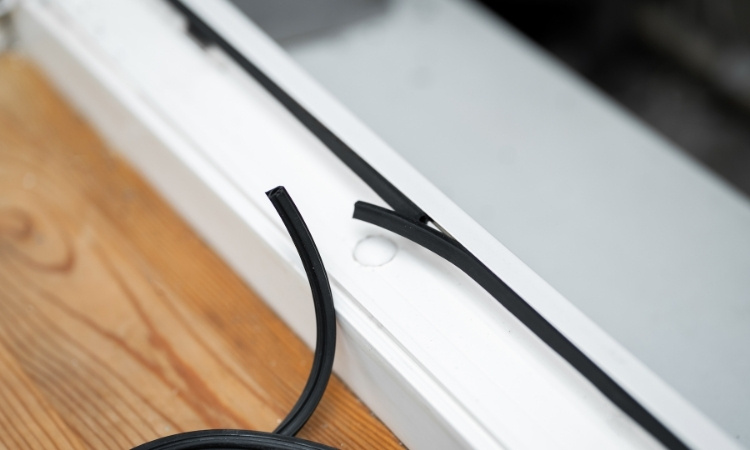If you’re like me and you’ve noticed rainwater dripping in, your curtains swaying with every gust of wind (even with the windows closed), or a sudden spike in your electricity bill, it might be time to replace the rubber seal on UPVC windows. Living in Singapore, I’ve learned how quickly rubber seals can wear out thanks to our intense heat, non-stop humidity, and those epic monsoon rains.
It’s a small component most people ignore, but once it goes bad, you’ll feel the difference almost immediately. So instead of waiting for a leaky disaster or calling someone to do a simple job, I decided to handle it myself. And honestly, replacing the rubber seal on UPVC windows turned out to be easier than expected.
Here’s exactly how to replace the rubber seal on UPVC windows in Singapore, and what to expect if you’re doing this for the first time. Therefore, LS Window Repair Services Singapore explains the complete process to replace the rubber seal on UPVC Windows in Singapore. Moreover, their window seal replacement, window repair, and window hinge replacement are the best in Singapore.
Why Rubber Seals Wear Out So Fast in Singapore
You’ve probably noticed how fast things crack, grow mold, or warp here. That’s because Singapore’s climate is punishing, especially for anything rubber. Between the strong UV rays and relentless humidity, even well-made UPVC windows start showing signs of wear.
What I found most frustrating was that the rubber seal didn’t just shrink or crack — it lost flexibility. In some spots, it even crumbled when I touched it. Here’s what’s working against us:
- Intense sun: UV rays dry out the rubber fast, especially in rooms with direct exposure.
- Constant rain: Water seeps into cracks, encouraging mold and bacteria.
- Humidity: That constant moisture? It keeps things damp 24/7.
- Salt air: If you live near the coast (like on the East Coast or Sentosa), the salty breeze adds to the damage.

Steps to Replace Rubber Seal on UPVC Windows
Here’s a complete breakdown of how to replace the rubber seal on UPVC windows in Singapore:
1. Identify the Problem
Check for visible cracks, mold, or signs of air/water leakage. You can do this by:
- Feeling around the window frame for drafts
- Looking for condensation between glass panes
- Checking for discolored or hardened seals
2. Gather Your Tools and Materials
You don’t need a professional’s toolkit. A few affordable items from local hardware stores like Home, Selffix, or even Shopee SG will do:
- Flat-head screwdriver or seal removal tool
- New EPDM rubber window seal (make sure it’s UV-resistant)
- Utility knife
- Cleaning solution (vinegar + water or mild detergent)
- Microfiber cloth
- Silicone lubricant (optional for easier insertion)
3. Remove the Old Seal
A flat-head screwdriver can carefully remove broken seals from the window frame. Avoid scratching the window frame as you work. Peel it off slowly, especially in corners.
4. Clean the Channel Thoroughly
Clean the groove thoroughly with a damp cloth and cleaning solution to remove any debris, mold and remnants of adhesive. A suitable hold of the new seal depends on the complete cleaning of the channel surface.

5. Measure and Cut the New Seal
You should measure the window frame precisely. Use a utility knife to cut the new rubber seal according to its measurements. Make your cut only a little longer than needed to create solid frame contact.
6. Install the New Seal
Begin at the corner of the groove while pushing the new seal into its position with consistent pressure. Make sure the new seal fits tightly while maintaining a good contact throughout its length. The use of silicone lubricant becomes necessary when the groove fits too tightly.
7. Test the Seal
After completing the work, you should check for air leaks by closing the window. Pour a small amount of water outside the window to ensure no seepage occurs.
Pro Tip: Choosing the Right Seal for Singapore Weather
When buying a new rubber seal, opt for EPDM (ethylene propylene diene monomer) or TPE (thermoplastic elastomer). These materials are ideal for Singapore due to:
- Excellent UV resistance
- Durability in high humidity
- Resistant to mold and mildew
Most hardware stores in Singapore sell pre-cut sizes, but it’s always better to buy in bulk rolls if you have multiple windows to repair.
Common Mistakes to Avoid
- Using the wrong seal size – Always match the profile of your existing seal.
- Skipping the cleaning step – Dirt will prevent proper adhesion.
- Forcing the seal in – You might damage the frame or warp the seal.
- Not checking the corners – These are common leak points, so ensure they’re tight.
When to Call a Professional
While DIY is doable, certain situations call for expert help:
- Windows are high or hard to reach (common in HDB flats or condo units)
- There’s visible mold or condensation inside double-glazed panes
- You’re unsure about the seal type
Companies in Singapore specializing in UPVC windows rubber seal replacement can often complete the job within an hour, depending on window access and type.
Conclusion
Living in Singapore means your windows face constant battles with humidity, heat, and rain. Learning how to replace the rubber seal on UPVC windows is a smart and cost-effective way to keep your home comfortable and energy-efficient. Whether you’re in an HDB, condo, or landed property, don’t ignore small leaks or drafts — a simple rubber seal replacement might be all it takes.
Remember, if the job feels tricky, there are professionals in Singapore ready to help with the rubber seal on UPVC windows replacement quickly and affordably.

